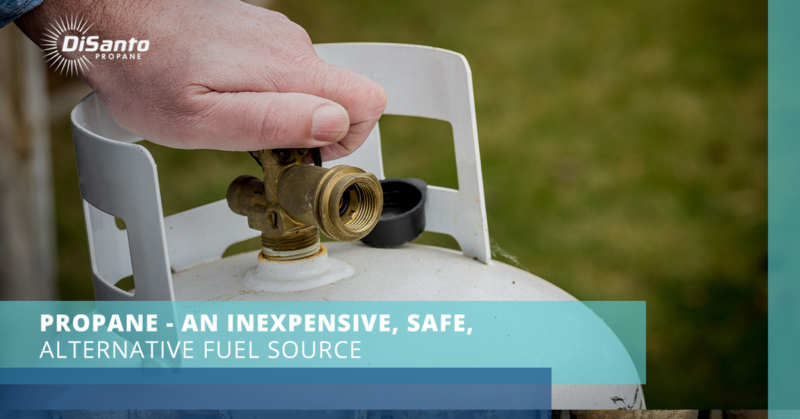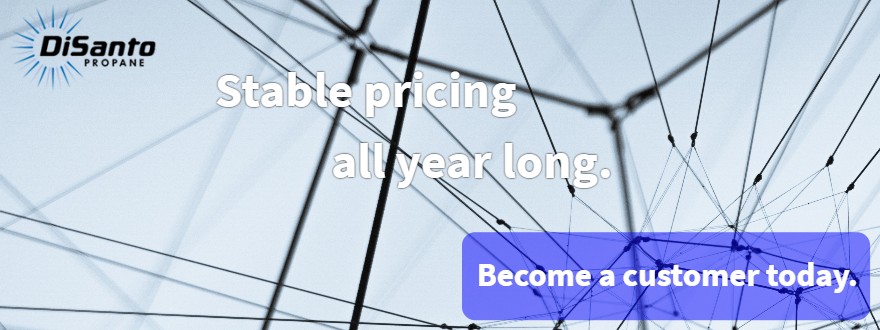One thing we failed to make time for in that post was the state of propane in the modern era. Propane is a safe fuel, it saves countless Americans significant chunks of change off their energy bill each month, and it has a variety of applications in the commercial sector as well. Among the applications that we ourselves at DiSanto are involved in include Forklift Propane, Propane for Builders & Contractors, Autogas & Fleet Fueling, and Agricultural Propane
But instead of highlighting those individual commercial propane services we offer at DiSanto, our scope will be wider in today’s post. If you are interested in learning about how propane is used as a safe transportation fuel, read on! This one’s for you.
Safety
Let’s talk about safety first. When dealing with any fuel source, safety must be a chief priority. Over the past few decades, the industry has seen unprecedented levels of safety standards applied all over the country. Propane appliances and other equipment are made with these qualifications in mind.
In addition, propane is also a relatively safe fuel because of its narrow range of flammability — it boasts the lowest flammability range of any fossil fuel. Specifically: the air and propane must contain 2.2. Percent to 9.6 percent propane vapor. If it’s less than 2.2. Percent gas, it’s too learn to be able to burn, whereas it’s too rich to burn if the mixture is greater than 9.6 percent. What’s more, propane can’t ignite when it comes into contact with air unless the ignition source gets up to 940 degrees F. For reference, gasoline needs to only reach 430 degrees to 500 degrees F to ignite.
This points to perhaps the best aspect of all with regards to this topic — if liquid propane leaks, it vaporizes and is released into the air rather than puddling and becoming a safety hazard. That means it cannot be ingested like gasoline, which is a positive for any family with little ones running around doing who-knows-what.
Propane As Engine Fuel
Propane has been used as a transportation fuel for over fifty years now. School districts use propane for bus fleets, as do other organizations which utilize fleets of vehicles for a variety of purposes. But why?
- Clean – Propane is clean in the sense that it’s clean-burning, meaning it leaves no traces of lead, carbon deposits, or varnish which can wear down engine parts like rings, valves, spark plugs, or pistons. Having a cleaner engine has the net effect of prolonging an engine’s life, which means less maintenance and replacement. For commercial fleet owners, this has an obvious appeal.
- Driving Range – Propane-fueled vehicles offer the longest drive range of any alternative fuel out there. It beats compressed natural gas by 250 percent and methanol by 50 percent. Ethanol makes it interesting, but being 25 percent behind still keeps propane in a class of its own.
- Octane Rating – While gasoline typically uses some additives to boost its grade and performance, propane’s octane rating of 110 is usually higher than all available gasoline.
- Propane vehicles have been reported to last between two to three years longer than typical gasoline vehicles. This can be attributed to the clean-burning nature of propane that we explained above.
- To prove that we aren’t just spreading propane propaganda, we will warrant that driving with propane leads to around 10 percent loss in the “miles per gallon†category. Because propane has a lower BTU (British Thermal Units for you trivia buffs) content than gasoline, it simply takes more fuel to generate an equivalent amount of energy.
Switch To Propane!
If you are interested in commercial propane services or commercial propane fleet fueling to any degree, reach out to us to learn more about how propane can extend the service life of your vehicles and put more money in your pocket as a result.
We’d love to hear from you, so contact us today!


